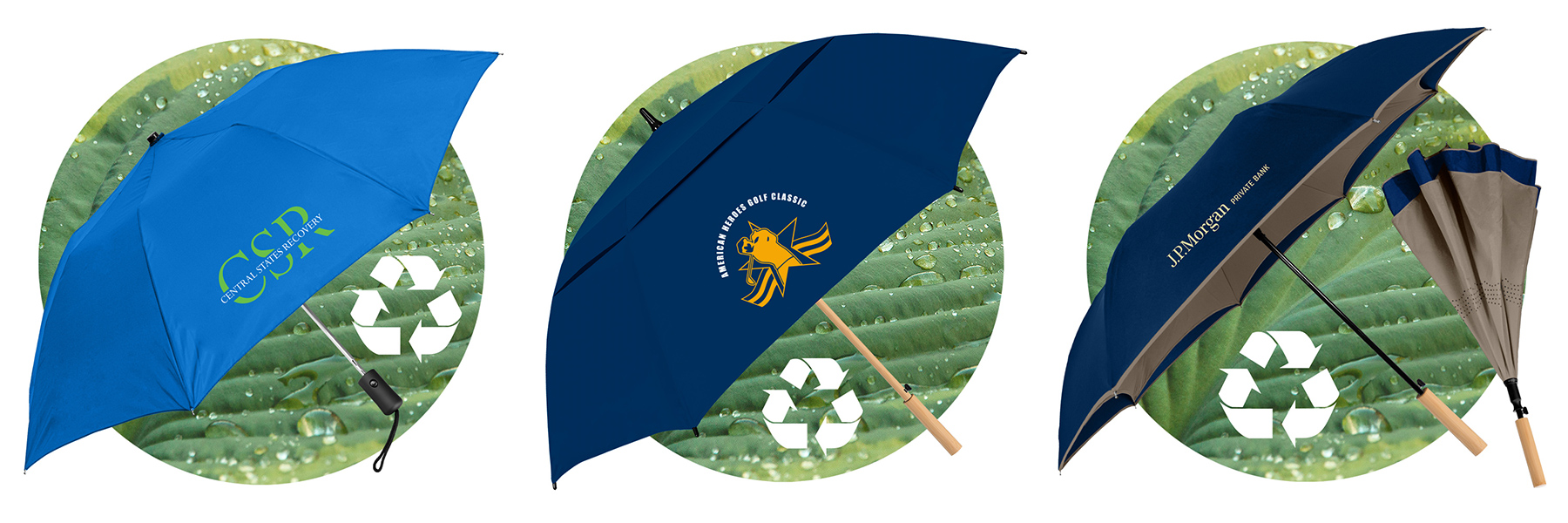Consumers are more interested than ever in SUSTAINABLE PRODUCTS, with research showing it’s on a notable upward trajectory. This isn’t a trend or fad, the focus on sustainability is here to stay. StrombergBrand has three eco-friendly umbrellas to choose from in the three most popular categories: folding, golf an inverted! Our Enviro Collection canopies are made from RPET recycled plastic bottles, with two also featuring sustainable bamboo components! Each Enviro even includes a matching RPET fabric case.
Their beautiful and durable RPET pongee fabric canopies look and feel just like our other styles yet are gentler on the environment. No compromises in quality and still value-priced like the rest of the StrombergBrand product line. A winning formula for both the planet and advertisers!
https://www.strombergbrand.com/eco-friendly-umbrellas
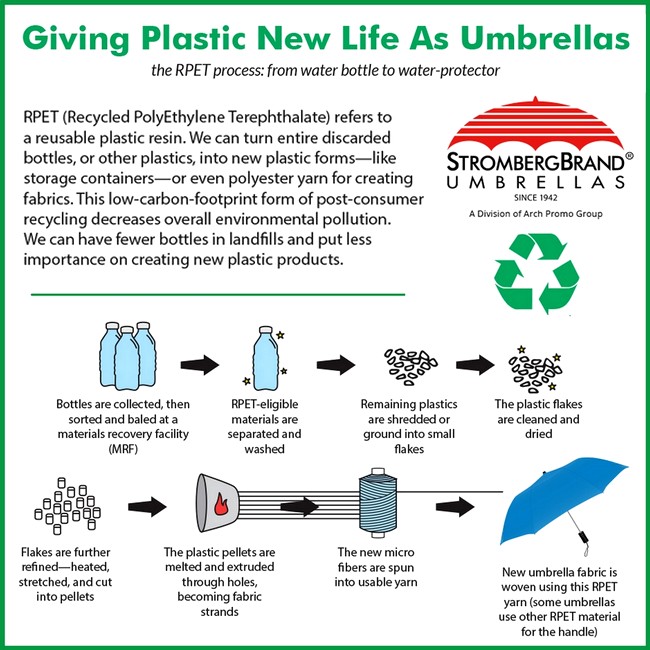
Excerpts from an article at businessnewsdaily.com...

Over the past five years, there has been a 71% rise in online searches for sustainable goods globally, according to The Economist Intelligence Unit. Consumers are engaging with sustainable businesses in ways that they previously ignored. This trend isn’t just in first-world countries. Consumer satisfaction in developing and emerging economies is also tied to concerns around climate change, and many want businesses to commit to protecting nature and natural systems. Learn from companies like PayPal that prioritize social responsibility, setting an example for employees and customers.
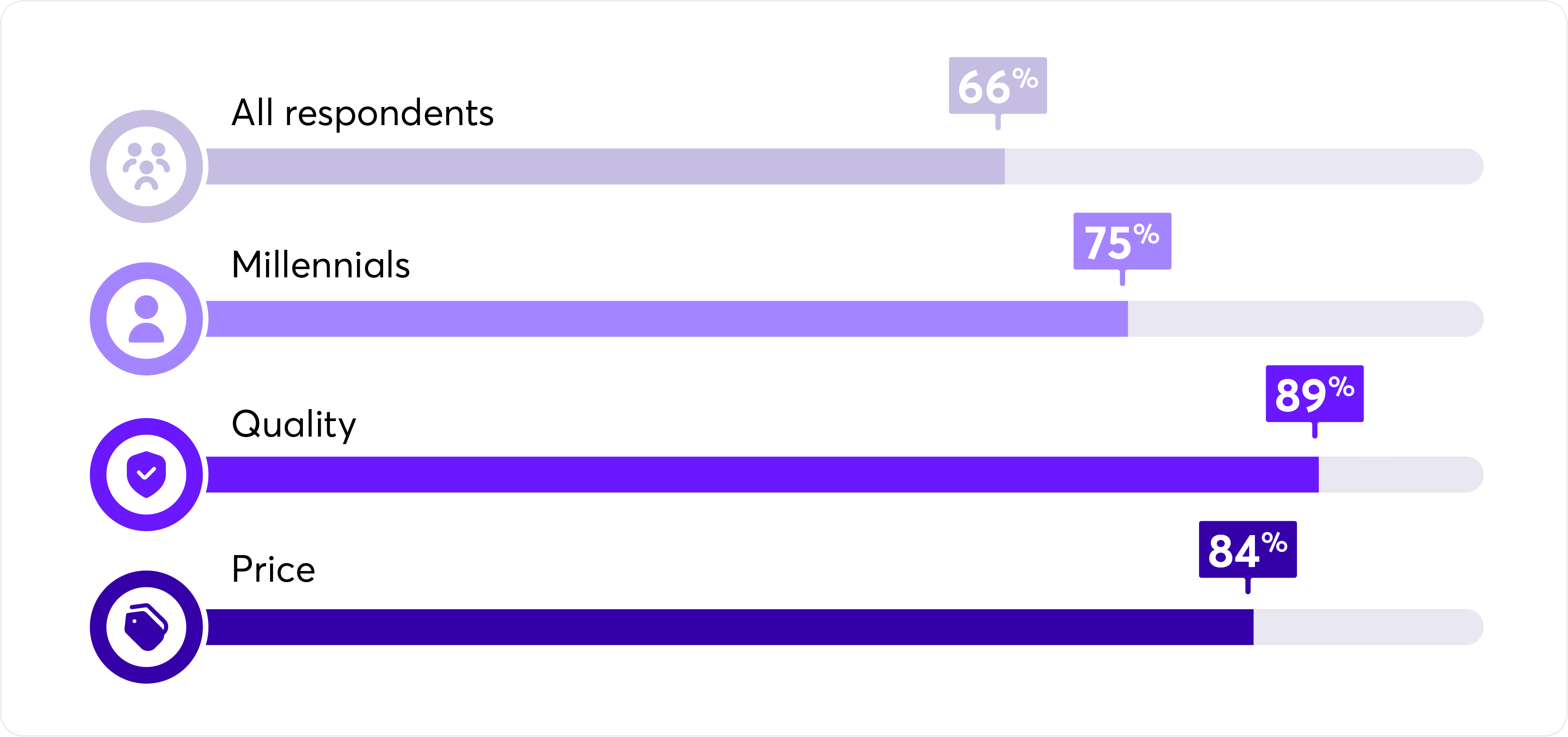
According to a survey from McKinsey & Co., 66% of all respondents and 75% of millennial respondents say that they consider sustainability when they make a purchase. Customers now align themselves with brands that are compatible with their values and priorities. With environmental stability as a high priority for many people, it’s important that businesses do their part to lower their carbon footprint.
Consumers consider products’ environmental impact
While the data suggests that more consumers form relationships with brands that pay attention to their products’ environmental impact, researchers at Accenture were quick to point out that affordability and quality were still the main driving factors behind a vast majority of purchases.
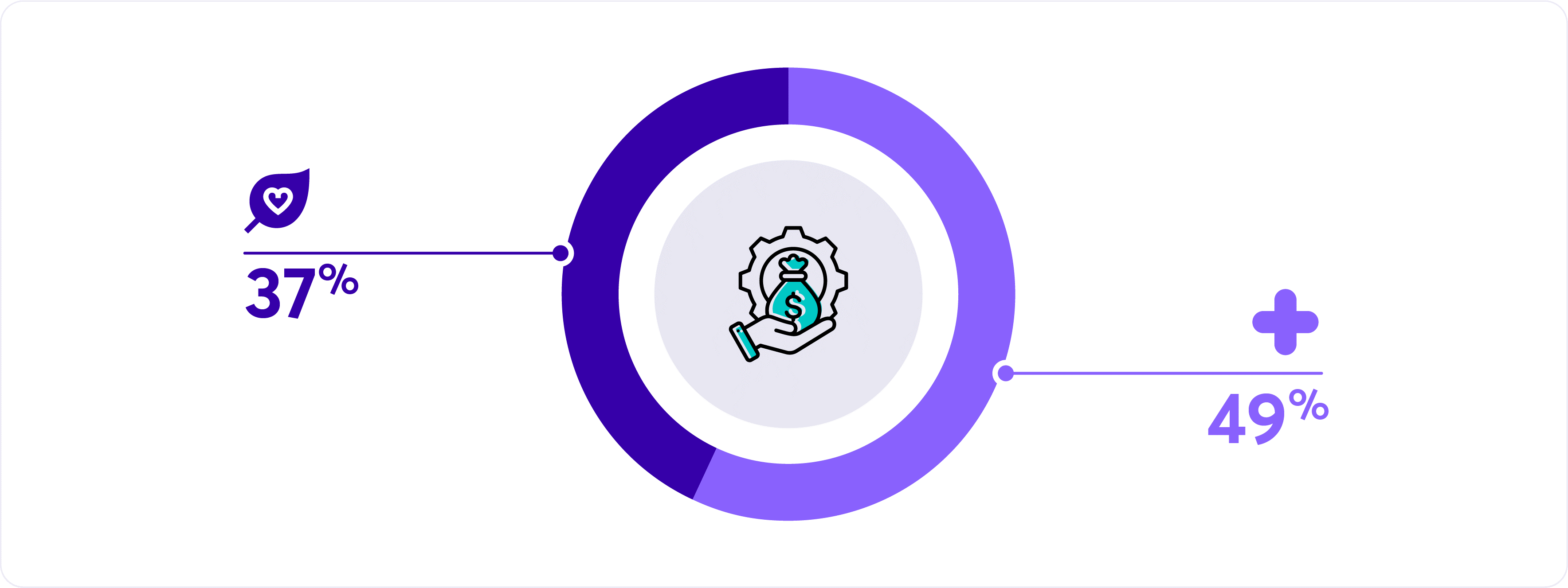
Among the respondents, 89% said they cared the most about the quality of a product when choosing a product to buy, with price coming in at 84%. While consumers are right to consider the financial impact of a product, researchers said 49% cited health and safety and 37% cited environmental impact as factors they consider before purchase.

Furthermore, researchers said 72% of respondents reported that they were actively buying more environmentally friendly products than they did five years ago, while 81% said they expected to buy even more over the next five years.
“The shift in consumer buying, with more consumers willing to pay extra for environmentally friendly products, reinforces the need for companies to increase their commitments to responsible business practices,” said Jessica Long, managing director of strategy and sustainability at Accenture. “Companies across industries have started to lead with purpose, including embracing the circular economy as a greater opportunity to drive growth and competitive agility.”
Key Takeaway: Many customers are willing to pay more for sustainable products with high-quality, environmentally friendly packaging.
Consumers question the impact of chemicals and plastics
In addition to consumers’ growing awareness of how their products are packaged, the survey’s findings show that people are paying attention to the global climate crisis.
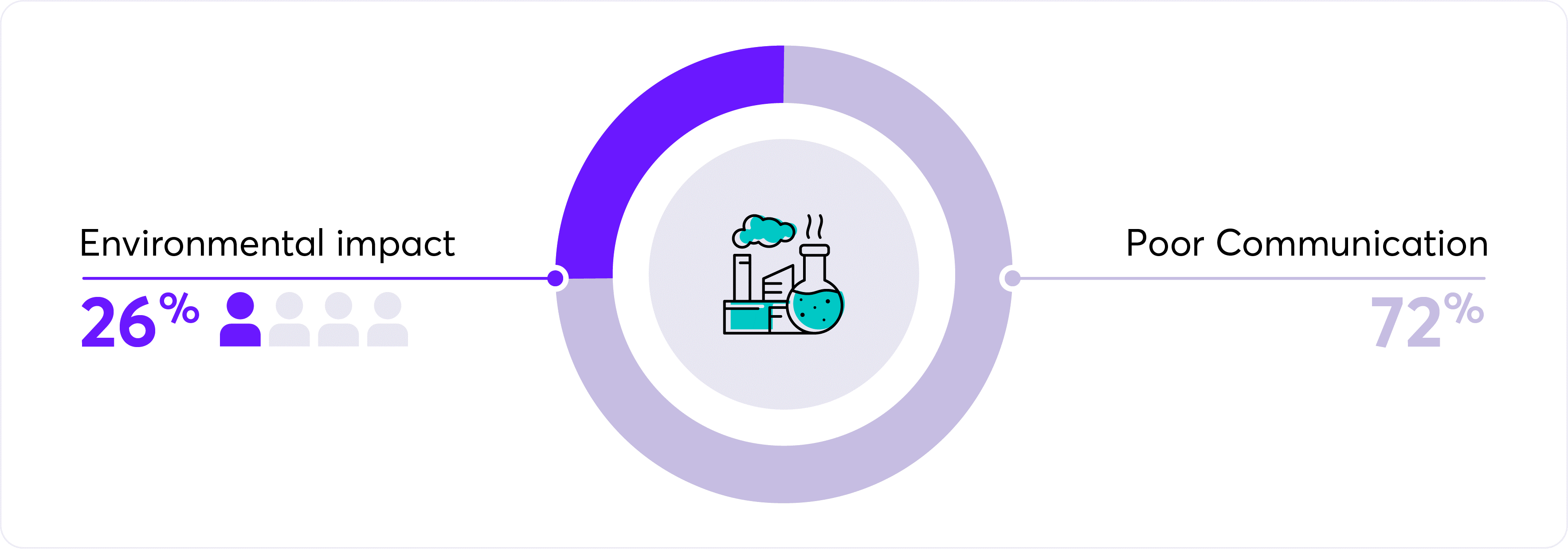
Key Takeaway: Consumers are more attracted to brands with sustainable practices and products – and those businesses turn a profit.
Industries and companies are listening to their consumers about what they want. Over 50% of C-level executives in the fashion and textile industry have claimed that consumer demand is driving their brands to create sustainable products and best practices. Many of these companies have been sourcing sustainably produced raw materials to create their apparel.
The trend of sourcing organic and sustainable materials has also been seen in the food, cosmetic and pharmaceutical sectors. These industries have been making a concerted effort to use sustainable materials. Consumers have the ability to drive entire industries to change, and the benefit for those companies is that they have a positive increase on their market sector.
Sean Peek contributed to the writing and reporting in this article.
